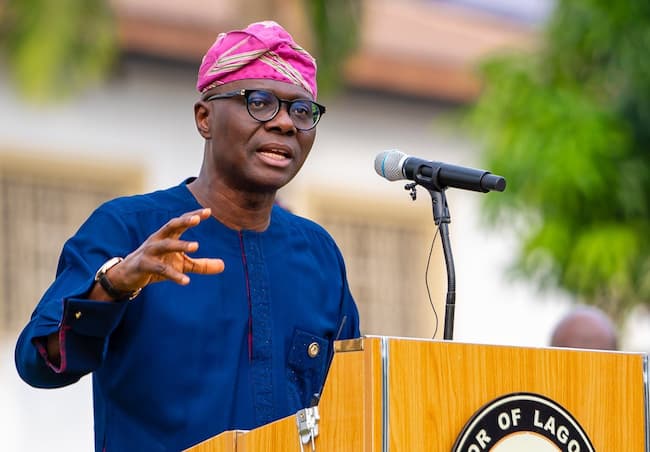For Nigeria to complete the infrastructure gap in the crucial sectors of the economy, about $11 trillion would be required, the Association for Consulting Engineering in Nigeria (ACEN) revealed.
To this end, the Lagos State Governor, Babajide Sanwo-Olu, professional engineers, experts, and other stakeholders have advocated increased investment in infrastructure provision to foster real growth and economic prosperity on the continent.
Sanwo-Olu, alongside the professional engineers and experts, spoke at the opening of the 28th Annual FIDIC Africa Infrastructure Conference held on Monday in Lagos, with the theme, ‘Infrastructure Development in Africa.’
While lamenting the absence of infrastructure in many African countries as one of the drawbacks to achieving meaningful growth in many countries, the speakers noted that the infrastructure deficit in sub-Saharan Africa was exacerbated by low investment and poor funding.
The provision of critical socio-economic infrastructure could catalyze growth in the Gross Domestic Product (GDP) and stimulate prosperity.
A cross-section of experts and speakers harped on the need for government to take advantage of the public-private partnership financing model, saying private sector funding will accelerate the delivery of long-term infrastructure, bolster the availability of services to the people, and create more jobs.
Governor Sanwo-Olu, in his keynote speech, decried the lack of infrastructure as one of the factors inhibiting Africa from realizing its full potential.
He said, “As the theme of this year’s conference, “Infrastructure Development in Africa,” connotes, you have dedicated this edition of your conference towards reawakening us as individuals, private organizations, and government to raise awareness about the critical role infrastructure plays in the competitive global economy in the 21st century.
“This theme is particularly relevant because lack of adequate infrastructure has been identified as one of the key factors responsible for the inability of Africa to realise her full economic potential despite being generously endowed in natural resources.”
Represented by his Special Adviser on Works and Infrastructure, Mrs. Aramide Adeyoye, the governor, further noted that it would be difficult to create jobs without adequate and quality infrastructure, especially for the people and the growing youth population to create decent and comfortable living standards.
He said the state government has consistently accorded infrastructure development and renewal priority to build a stronger economic base in line with the status of Lagos State as Africa’s fastest-growing megacity.
President of ACEN, Ajibade Oke, in an address to the participants at the two-day conference, said the increasing population in Africa underscores the need for increased investment in infrastructure.
“There will always be a need for infrastructural development as population increases. This phenomenon is more apparent in Africa where population increases geometrically. Unfortunately, Africa also has huge challenges in infrastructure development, and needs several trillion of dollars to get adequate infrastructure in place that will enable the continent catch up with the rest of the world. The world will not wait for Africa. We need to double up,” Oke stated.
He further said the hosting of the conference in Nigeria for the third time was significant in light of the global recovery from COVID-19, adding that infrastructure development is strategic to the efforts at reflating the national economy.
President, International Federation of Consulting Engineers (FIDIC) Africa, Kabelo Motswagole, stated that the conference theme was apt and auspicious when most governments in Africa are looking for alternative ways of funding infrastructure development and maintenance.
According to him, “this is particularly so as the COVID-19 pandemic expenditure depleted most countries’ development budgets.”
Motswagole added that issues of sustainability and resilient infrastructure were important to Consulting Engineers, insisting that the conference will generate solutions and useful resources that will help the government address the challenges of infrastructure.














